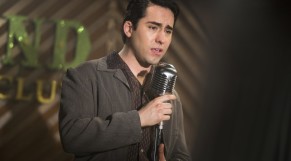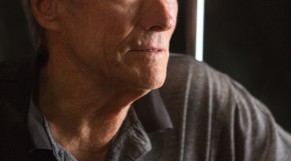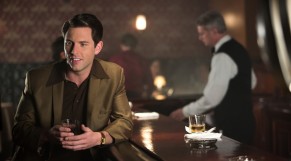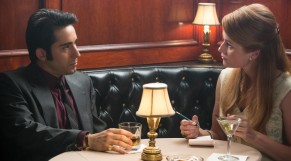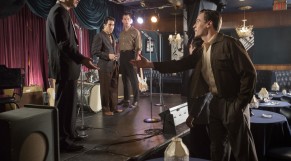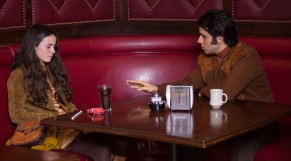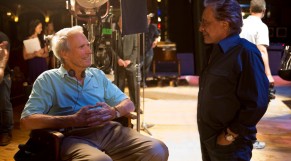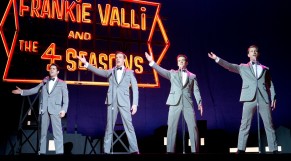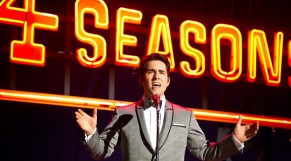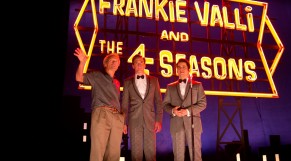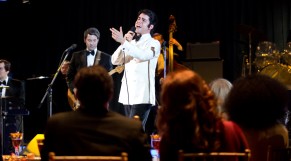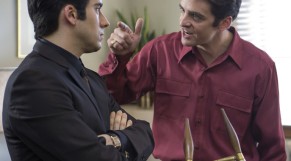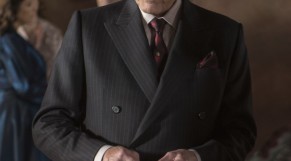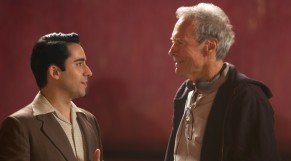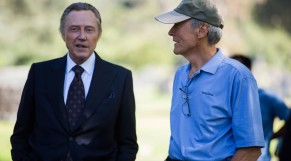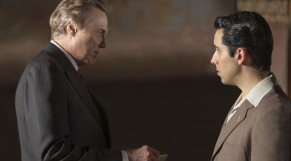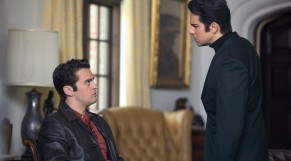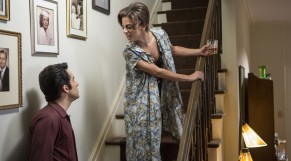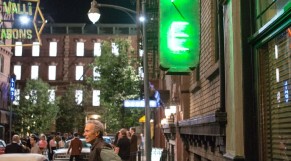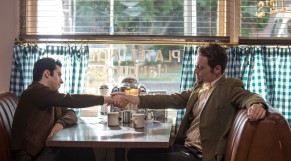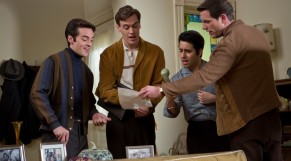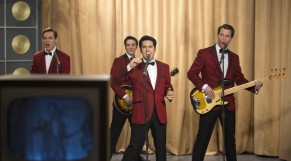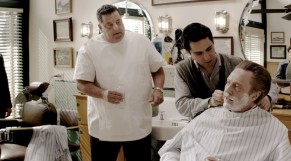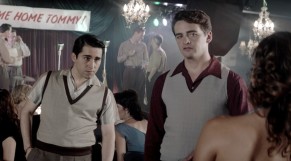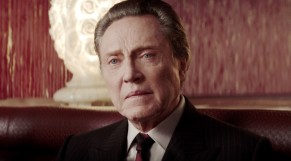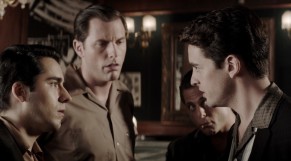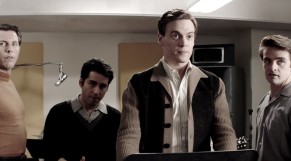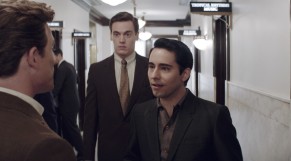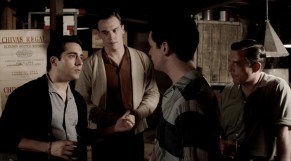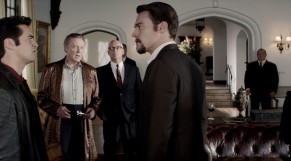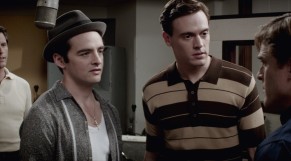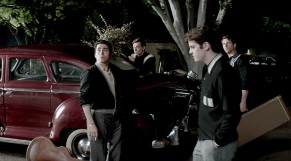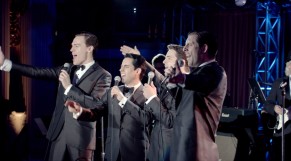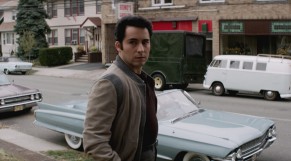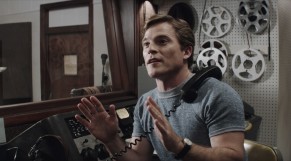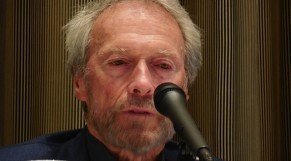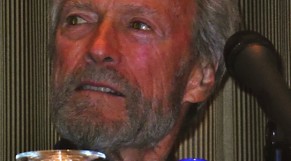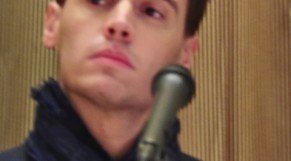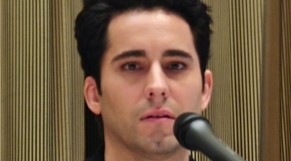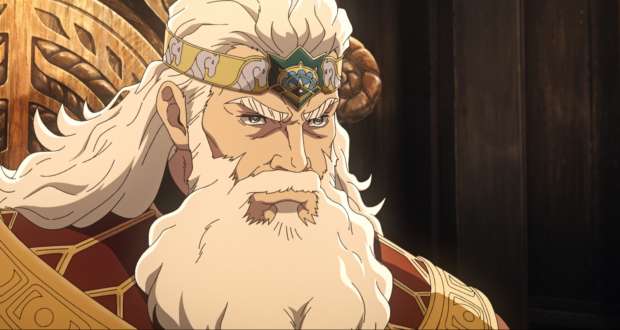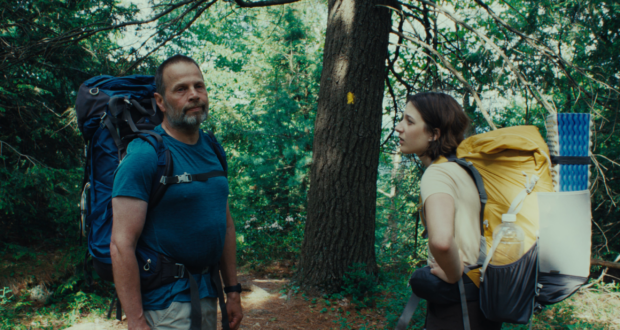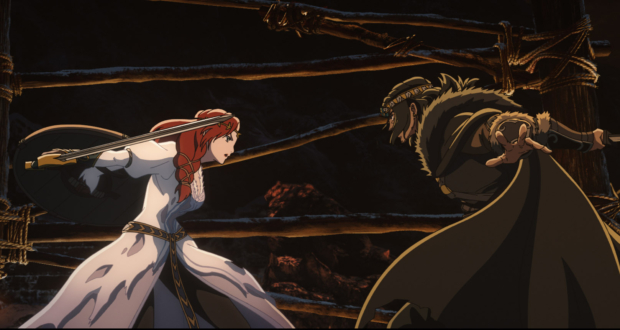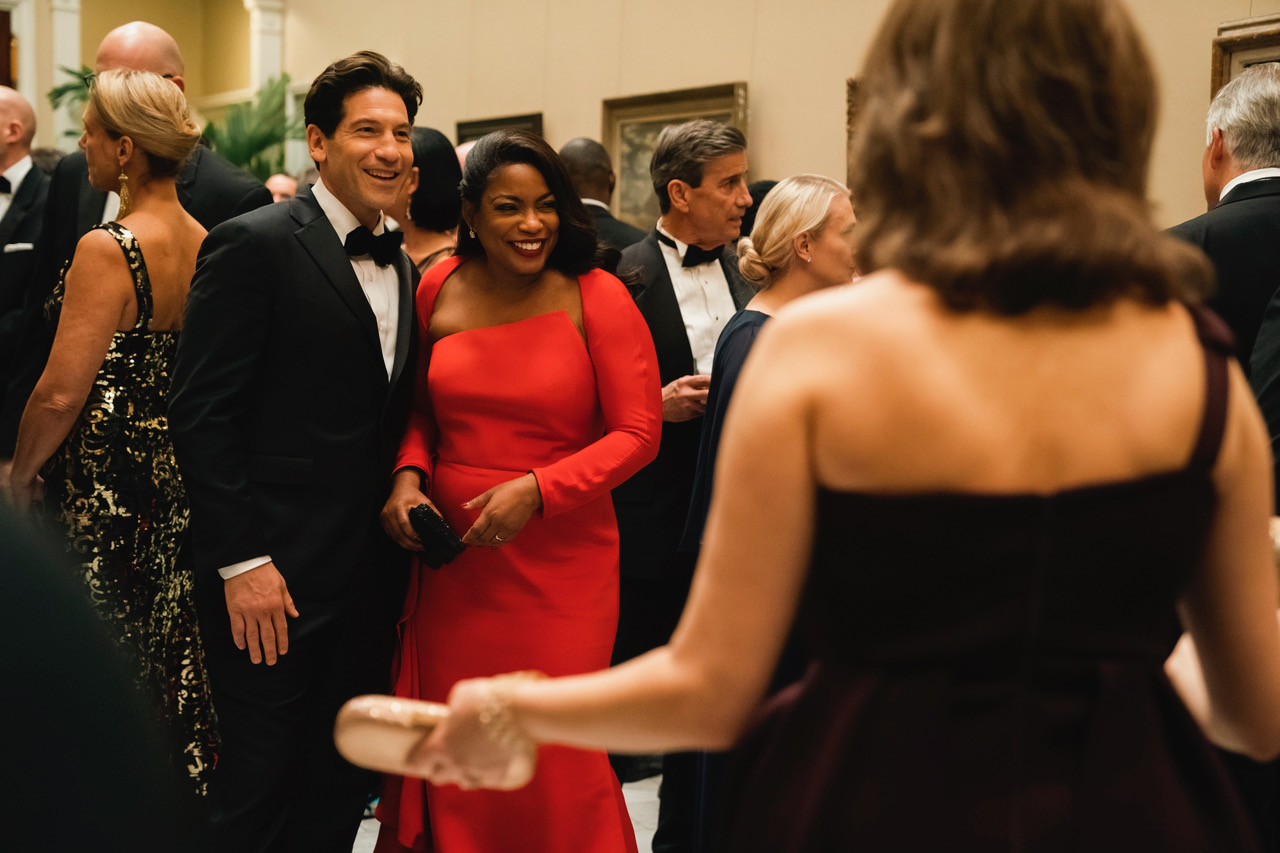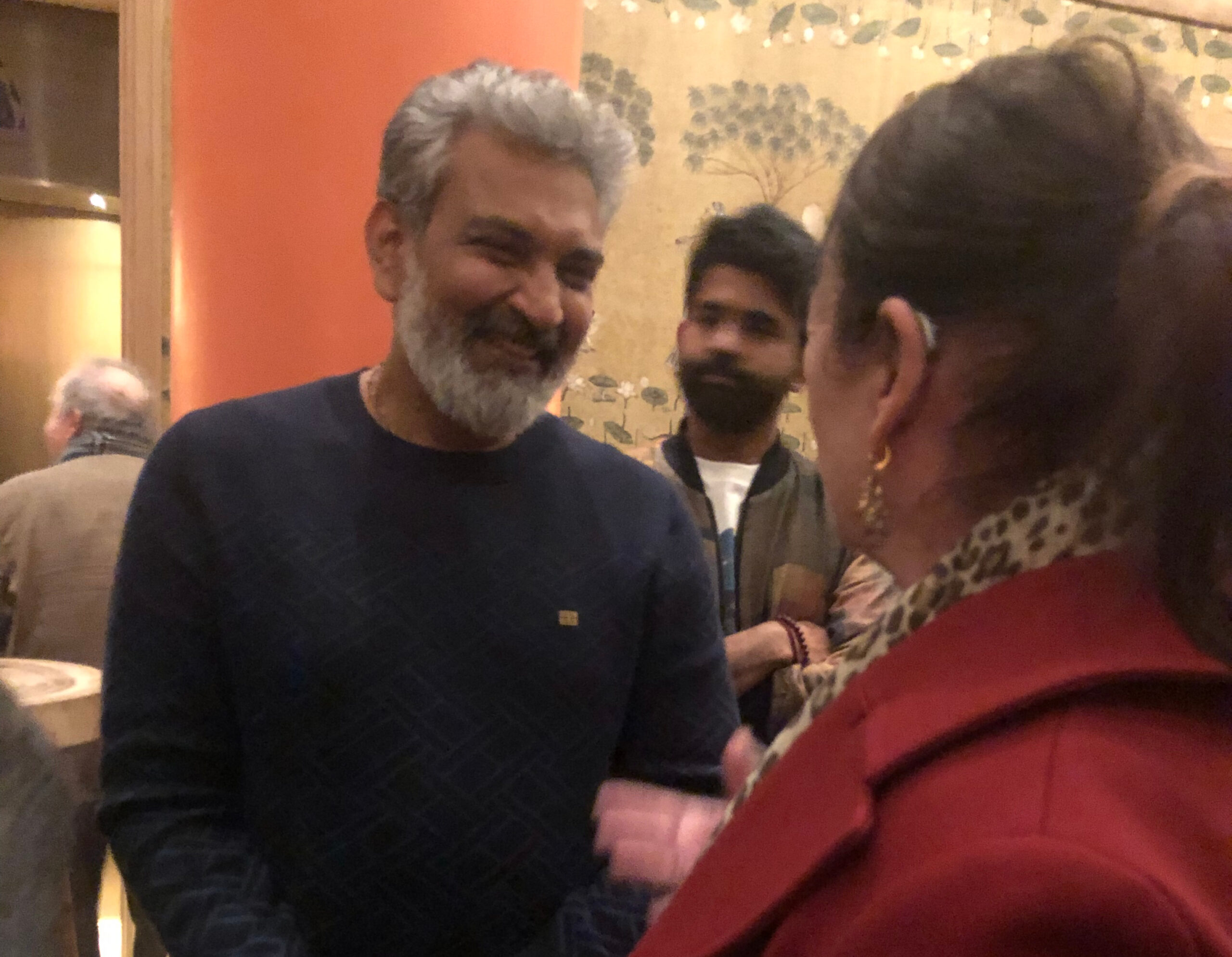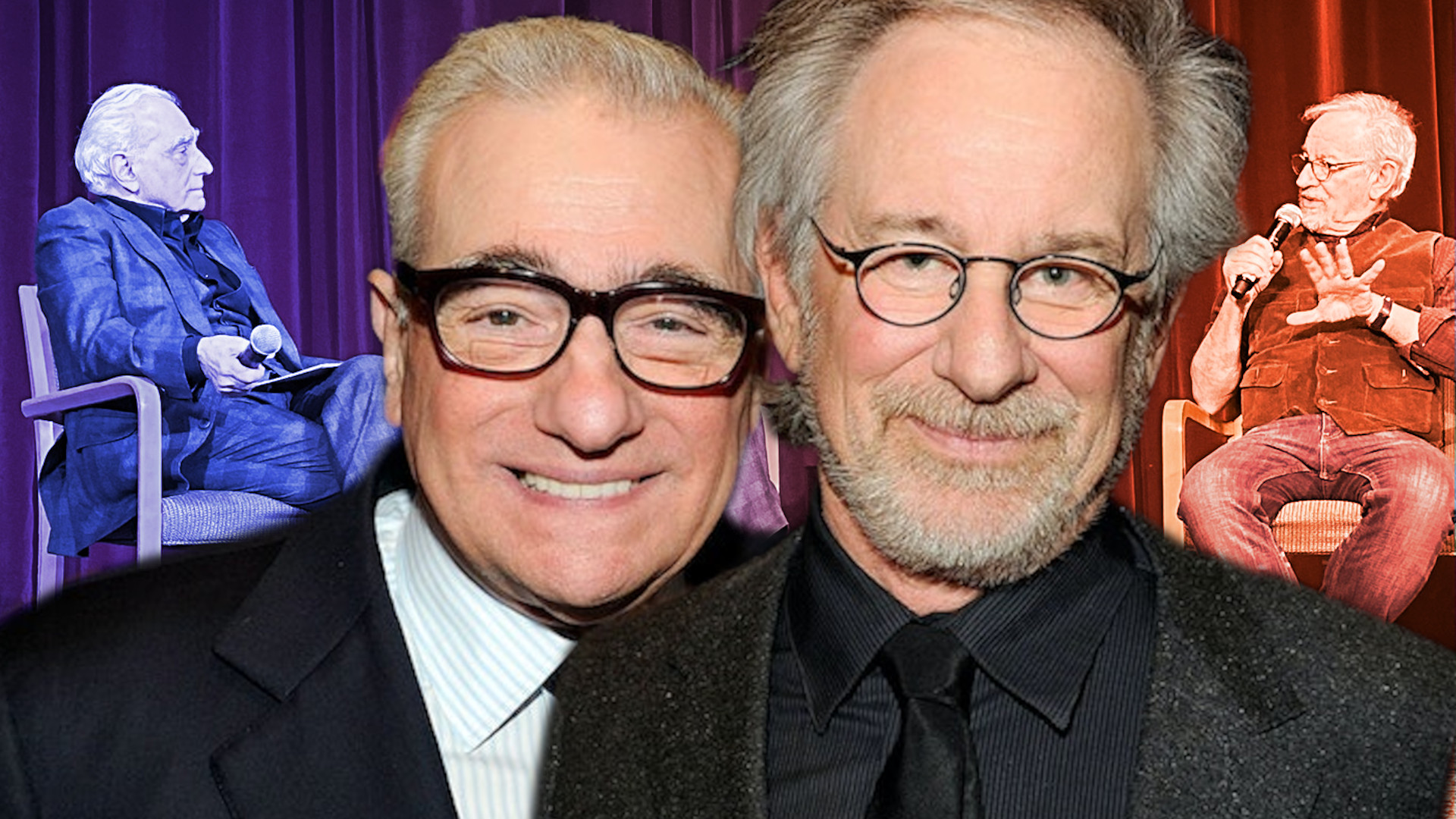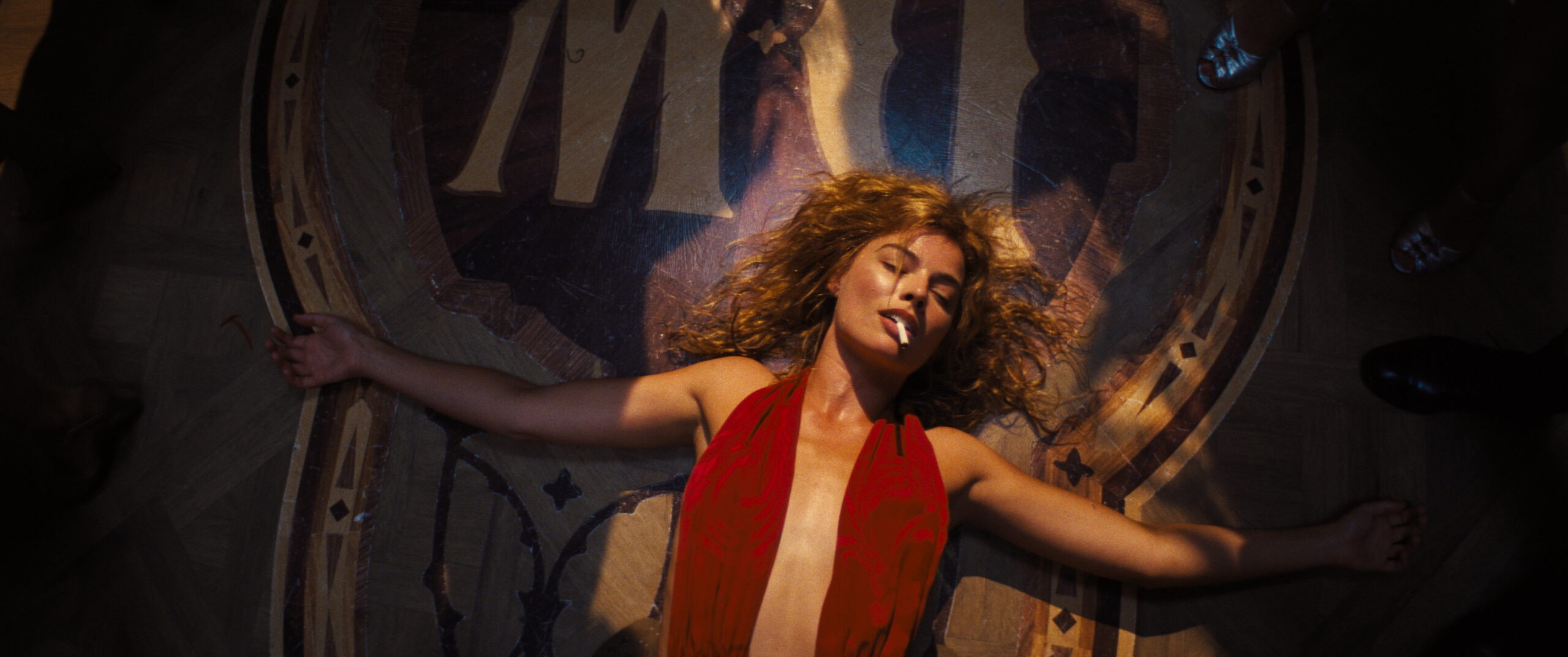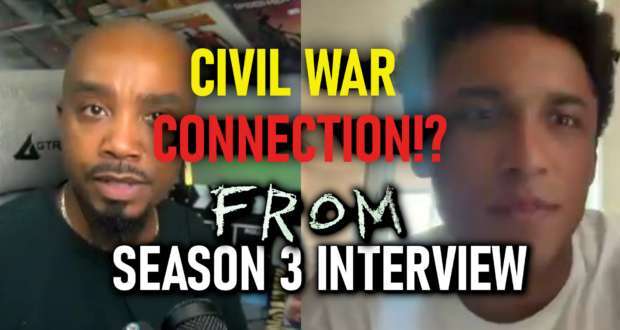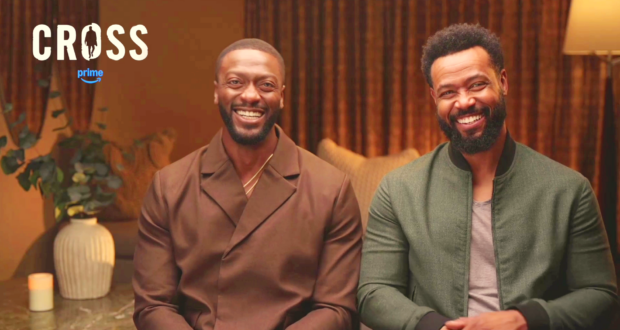The jukebox musical “Jersey Boys” about 1960’s rock group the Four Seasons is still going strong on Broadway, where it won four Tony Awards, including for best musical and for John Lloyd Young, who played lead singer Frankie Valli. And fans still swoon over Valli’s falsetto in catchy tunes like “Big Girls Don’t Cry,” “Can’t Take My Eyes Off You,” “Sherry” and “December 63 (Oh What a Night!),” all composed by Bob Gaudio, lesser known than Valli but a key reason for the group’s success.
Clint Eastwood has directed the film version, which opens Friday, June 20. Purists and fans of the group may object to the director’s focus on the personal drama of the group’s rise and history, including their mob ties and less than admirable personal qualities. Still there are plenty of bouncy songs and stellar performances by the four stars – John Lloyd Young (reprises his Broadway role as Valli), Erich Bergen (Gaudio), Vincent Piazza (Tommy DeVito) and Michael Lomenda (Nick Massi) – to keep Four Seasons aficionados happy. (Christopher Walken as mobster Gyp DeCarlo is hilarious as always.)
Eastwood, screenwriters Marshall Brickman and Rick Elice, along with the four young stars who played the Four Seasons – and except for Piazza, who is best known for playing Lucky Luciano in HBO’s “Boardwalk Empire,” performed in various stage versions of the musical across the country – promoted the film at a press conference at the Waldorf Astoria hotel recently. Almost all the questions were directed to the legendary director, whose drawl is a little slower at 84, but who is just as sharp and dryly humorous as ever. The young actors, clearly awed, referred to him as Mr. Eastwood.
Here are some edited highlights from the press event:
How in the world did you decide to do the Jersey Boys?
Clint Eastwood: It seemed like something to do. (laughter)
It’s funny because I hadn’t seen the play but I’d heard a lot about it over the years. Somebody said would you be interested in doing that and I said I’d certainly be interested in looking at it. And then they sent me a script and it was by a very good writer, but then I found out later through a series of events that that wasn’t the script of the play so then I asked, where can I find that? A friend of mine, a gent said, I represent the guys who did that, Mr. Elice and Mr. Brinkman, so I said maybe I better look at that, cause I figured only in Hollywood would somebody give you a script of something else when they have a script that’s a hit, so I looked at that. I liked it very much and I went and saw three different versions of the play in New York, San Francisco and Los Angeles and saw all these wonderful actors and thought, what a nice project to be doing and so I said yeah. And that’s the last thing I have to say this evening. (laughter).
Have you ever met Frankie Valli? How challenging was it to make the film from the Broadway play?
CE: Well I met Frankie Valli years ago, in passing.
I was never a fan of music of that particular era. I came along before all that, but I did like the Four Seasons a lot. I thought their music was far superior (to the other groups of the day). I think ‘Can’t Take My Eyes Off You’ is one of the real classic songs of that era and would have been a classic song in the 40’s, 50’s, or 30’s, or any time in history and all of their stuff was very energetic music and great fun. They have great fun songs and certainly superior for that particular time in history I believe, so it was a challenge to do it, not a challenge, a pleasant challenge to do it, and to work with actors who had actually formulated, had a great influence on the play, on its run throughout the country. It was great to be using the original people.
Explain the chronology here. Weren’t you going to do “A Star is Born” to star Beyonce?
CE: I had been entertaining the idea of doing a remake of ‘A Star is Born’ and of which I was a fan of the movie with Fredric March and Janet Gaynor many years ago as a kid, so and I thought it’d be interesting to do that from the modern day standpoint but when this came along, I went to the head of the studio… The studio had been flirting with the idea of doing this project, but they had passed on it and I was having lunch with the head of the studio and I said, ‘Why would you pass on that?’ It’s been such a popular play and it’s still a popular play out there running. There must be something there and we started talking about it and finally he called me a short time later and said would you entertain doing this. It looks like we’re coming back into it now, thank you, and would you do this and set the other one aside, and I said, ‘Yeah, I would.’ By that time this was a lot more ready to go than the other project, which was still not completed as satisfactory, in my mind anyway.
What were the challenges in bringing this from the stage to the big screen?
CE: I didn’t think it was too much of a challenge. You can open it up, the stage play. I think it’s a wonderful play and it had a lot of excitement in it but I could push it more from the realistic angle.
There are a lot of things that you can do in a movie that you can’t do in the stage. They have to keep things moving and be very practical, so you just try to open it up and give it a certain realism maybe.
The movie tells the story of the Four Seasons from the viewpoint of each of the performers in the group, who were all Italian-Americans from New Jersey. How did you relate to them?
Well I try to relate to the whole thing… I went to a school which was about half Italian American and in an era where there was, it was quite an interesting era in Oakland, California, so I thought I understand something about that community. I had a lot of friends in that community and we used to call each other, not like today, where everything’s PC, we called each other dago (laughs). When Dinah Washington came out with the record, ‘What a Difference a Day Makes,’ we were going around saying what a difference a dago makes. These kids were all very friendly and a fun era to be in.
The film touched on this, that you don’t forgive a lot of things (in that community.) Maybe clichés, maybe not, but the Italian-American community where you get on the bad side and you’re on the bad side forever but I don’t know if that’s true nowadays but there is sort of a historical feeling about that that I related to.
Tommy DeVito (who was in debt to the mob) has a street named after him (in New Jersey)… there’s a little bit of a culture thing going on still with those guys… there’s no street named after me.
In one scene in the film the television is on and there’s a scene with you from your television series “Rawhide.” How did that come about and did the struggle of the Four Seasons resonate with you and your struggles as a young actor?
You’re talking about my Hitchcock moment? OK that was actually Erich’s (Bergen) idea… (The group is sitting down watching television and ‘Rawhide’s’ on.) I started thinking, ‘Yeah, it could be,’ because after all that was about the era about the right timing and so I thought maybe… Then I put it out of my mind, but than somebody who works for me… just went ahead and did it (and put it in) and afterwards I said, ‘Ok, I’ll live with that.’
It was about the same time as ‘Rawhide,’ from 1959-65. That was my first break after doing years of doing bit parts and unappealing roles, so it was a chance to gain a lot of experience in five-six years working with various directors, (especially) Sergio Leone.
John Lloyd Young, you must have good story about being cast.
John Lloyd Young: I had been in the original cast, the first two years and had been away from the show for several years and had been invited back to do the role again in 2012-2013 on Broadway. During that return to the stage I caught wind that Mr. Eastwood had been attached to the movie and was going around and watching the companies around the country and also caught wind that he was going to be interviewed by Darren Aronofsky at the Tribeca Film Festival on a Saturday afternoon. I was doing one show a day, not the matinees on two show days, so I had that Saturday free and my manager and I went and watched the interview with Aronofsky. (He introduced himself to the director at the interview.)
We had a hunch that maybe he might be at the matinee the next day where I was performing… In the wings before I was about to start work we heard that there was a standing ovation in the audience because they had seen Clint Eastwood walk into the audience and so I knew that he was going to be there the whole performance. It was a joyful performance because I felt that no matter what would happen with the movie I felt that how great was it to have somebody who has dominion in his world in Hollywood seeing me in the one thing in my life so far that I know I have dominion over, which is this role, this show, this production on stage.
Then a month later, the next time I saw him was on the set.
Talk about casting your leads.
CE: I got a standing ovation for actually going to the men’s room when I was at the Broadway show. That’s the first time and probably the last time that will happen.
Anyway, I enjoyed the play so much and by that time I had seen Michael (Lomenda) from the San Francisco one. Erich partly I attributed it to Bob Gaudio because I said, of all the people who have played you, who do you think was the best?
Erich: And he said William Holden.
CE: I love William Holden.
Erich: I was the second choice.
CE: But he was deceased at that time. We couldn’t get him. (Laughs).
And Vince (Piazza) I had never seen ‘Boardwalk Empire’ at that particular time but he did come in and do an audition and he was just spectacular in the audition so I said, okay I think we’ve got the guys here. I’d seen three boys and a lot of good actors in all of them but it seemed like, it was just, the group just all came together so well, like if, Michael saying, 1200 performances, that’s experience you just cannot buy.
I was kind of worried about Vince because he was starting from scratch but he just fit right in right away. I was just lucky. Casting a film is to me one of the most important things, next to writing. If you cast it properly everything kind of takes place very easily but if you cast it improperly you’re fighting an uphill battle.


